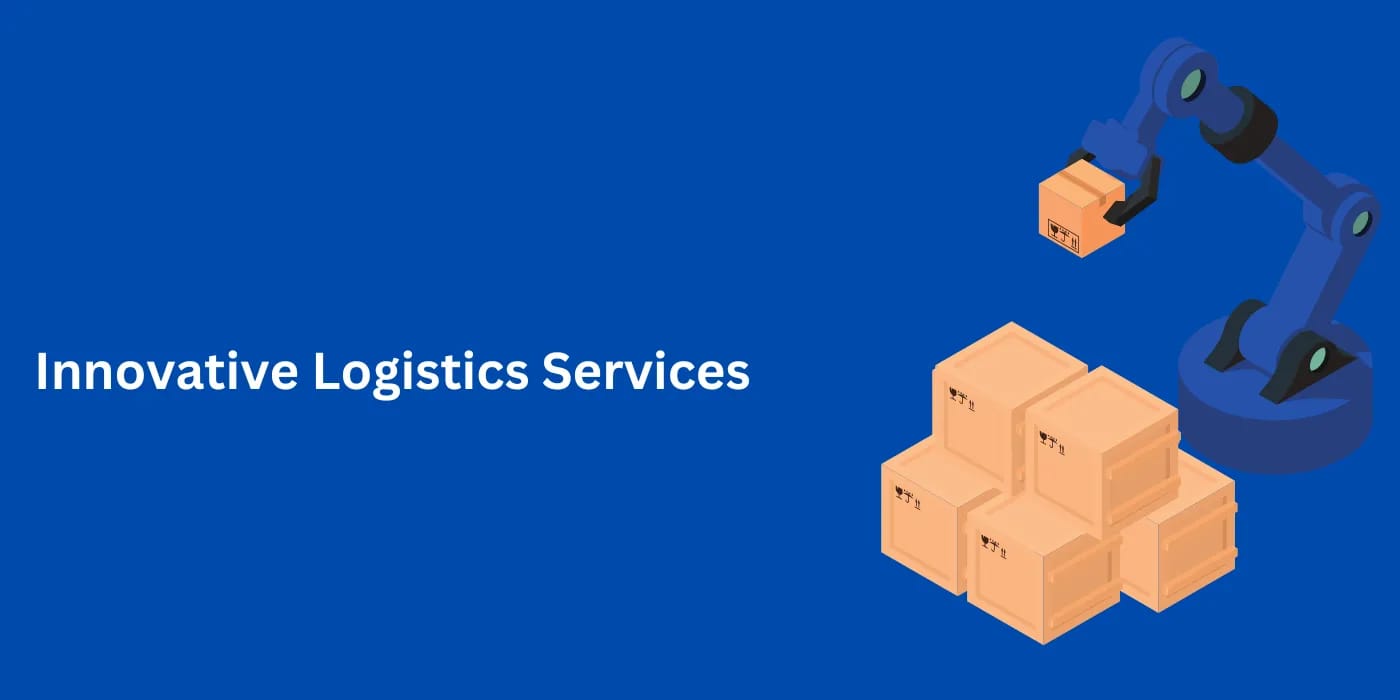In today’s fast-paced and highly competitive business world, logistics services play a crucial role in maximizing effectiveness and ensuring customer happiness. When you operate in essential industries such as healthcare, manufacturing, or automotive, you need reliable and proven methods to manage your Logistic service in Mumbai and deliver goods on time to your clients.
Improving logistics efficiency is vital for meeting deadlines, increasing profits, maintaining a good reputation, and achieving success. As companies strive to meet the ever-growing demands of customers, they are constantly exploring innovative solutions to simplify their supply chains and provide efficient and customer focused services. By examining real life examples and analysing emerging trends, our aim is to provide valuable insights into the transformative impact of pioneering logistics services in today’s dynamic business environment.
Understanding Efficiency in Logistics Operations: –
Efficiency is really important for logistics operations to be successful. It means being able to do things quickly, accurately, and using resources wisely. In logistics, efficiency covers different areas like making processes smoother, reducing costs, wasting less, and being more productive. When companies understand and focus on efficiency in logistics, they can get a lot of benefits.
How should an efficient logistic process look?
- Being efficient means finding ways to cut out unnecessary things and save money. For example, finding the best routes for transporting goods and smart strategies for storing them can reduce the time spent driving, the fuel used, and the money spent on storage.
- When logistics operations run efficiently, orders can be fulfilled and delivered faster. This means customers get what they want quickly, which makes them happy. Happy customers are always coming back and buy from the company again, which helps the business grow.
- When a company shows it can handle large amounts of products and do it well, suppliers are more likely to want to work with them. This creates strong partnerships and ensures a steady supply of good products for customers.
- Lastly, being efficient in logistics helps a company build a good reputation in the industry. When a company is known for doing things efficiently, it attracts more clients and becomes a desirable business partner. It also helps in finding talented employees who want to work for a company that is well respected.
To sum it up, when a company focuses on efficiency in logistics, it can save money, make customers happy, have better relationships with suppliers, and build a good reputation in the industry. All of these things contribute to the long-term success and growth of the company in a competitive business world.
Top seven ways to maximize efficiency and customer satisfaction
Improving logistics efficiency is really important for businesses to make their supply chain operations smoother, save money, and deliver products or services more effectively. Here are seven simple ways to enhance logistics efficiency: –
- Invest in New Technology: -Embracing the latest technology is vital for improving logistics efficiency. By investing in tools like GPS tracking, information management systems, and automation, businesses can streamline their operations and complete processes faster. GPS tracking provides real-time data on shipments, allowing for route optimization and faster deliveries. Information management systems centralize data, ensuring easy access to essential inventory information. Automation technology frees up human resources by automating repetitive tasks like data entry, enabling employees to focus on more complex projects, thus increasing productivity and efficiency.
- Provide Comprehensive Staff Training: –Ensuring that employees receive thorough training on the tools and technology they use is crucial. When introducing new logistics management systems or upgraded technology, it is essential to provide comprehensive initial training to familiarize staff with the new tools. Ongoing training should also be provided to develop their skills further and increase their value to the business. Well trained employees will feel confident and competent in using technology, leading to improved logistics efficiency and overall operational success.
- Foster Communication Between Departments: –Effective communication and information sharing between different departments are essential for efficient logistics. When there is a backlog in the warehouse or delays in supply deliveries, prompt communication is crucial to address and resolve these issues. Creating an environment that encourages open communication and provides easy access to shared information helps facilitate quick problem solving, improve coordination, and enhance overall logistics efficiency.
- Optimize Inventory Management: –Accurate demand forecasting helps businesses avoid stockouts and excessive inventory. Real-time tracking systems provide visibility into stock levels, allowing for timely replenishment and minimizing carrying costs. Just-in-time inventory practices ensure that the perfect amount of items is always there to be delivered, reducing storage costs and maximizing operational efficiency.
- Automate Processes: –Automation technology, such as robotics and software systems, plays a crucial role in enhancing logistics efficiency. By automating repetitive tasks like order processing, inventory tracking, and data entry, businesses can reduce human error, increase speed, and improve overall productivity.
- Implement Route Optimization: –Utilizing route optimization software helps optimize transportation routes, leading to cost savings and faster deliveries. By considering factors such as distance, traffic conditions, fuel consumption, and delivery schedules, businesses can identify the most efficient routes. Optimized routes reduce travel time, lower fuel costs, and enhance overall logistics efficiency, resulting in improved customer satisfaction.
Regular evaluation, monitoring, and adaptation of these strategies are essential to maintain a high level of logistics efficiency. Businesses should consider their specific industry, company size, and operational requirements when implementing these approaches.
By embracing technology, optimizing inventory management, fostering communication, automating processes, and implementing route optimization, businesses can enhance logistics efficiency, reduce costs, and deliver superior customer service, ultimately leading to long-term success in a competitive marketplace.
Overcoming Challenges in Adopting and Integrating Innovative Logistics Solutions: –
When it comes to adopting and using innovative logistics solutions, companies often encounter difficulties along the way. This section focuses on the challenges they face and how they overcome them.
Some common obstacles include limited resources, compatibility issues, and the need for employee training. However, the stories shared here show how companies successfully tackle these challenges. They do this by planning carefully, communicating effectively, and finding creative solutions.
By reading these examples, you can learn how other businesses have integrated new logistics solutions smoothly. This can help guide you in your own journey of embracing innovation in logistics. You will gain insights into the practical steps they took to overcome problems and make the most of advanced technologies and strategies.
Future Outlook: Emerging Technologies and Trends in Logistics Services: –
The future of logistics services is full of promising developments and new trends. This thing tells us what we can expect in the coming years.
Exciting technologies like self-driving vehicles and drones are on the horizon. These innovations will revolutionize how goods are transported and delivered. Additionally, the use of Internet of Things (IoT) devices and blockchain technology will improve supply chain management and make operations more efficient.
This means we can look forward to greener solutions like electric vehicles and alternative fuels. By exploring the future outlook for logistics, you can gain insights into the upcoming trends and technologies that will shape the industry. This knowledge will help you stay ahead of the game, embrace innovation, and adapt your strategies to thrive in the changing logistics landscape.































